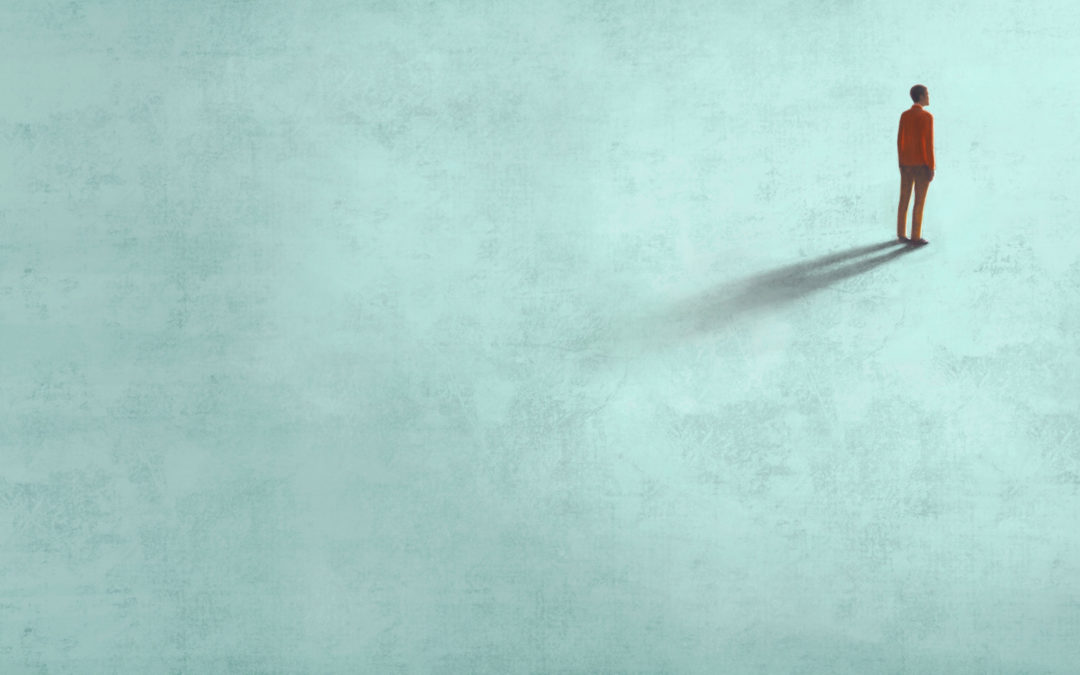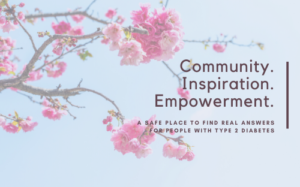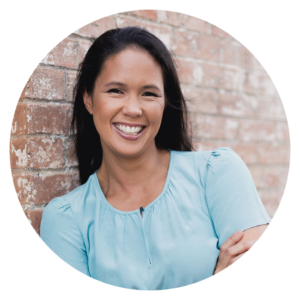How many times have you blamed yourself for your diabetes?
If only I had more self-control.
If only I had taken it more seriously back then.
If only I wasn’t so lazy.
Then what?
Then I wouldn’t be in this position, right?
All of these thoughts are rooted in the belief that something is wrong with you.
Believing that you deserve to have this disease because of some moral defect (e.g., stupid, lazy, worthless) keeps you stuck, rendering you powerless to overcome it.
When you blame yourself, you experience shame, which is an incredibly painful emotion.
Brene Brown, a researcher and expert on shame, defines shame as:
“the intensely painful feeling or experiencing of believing we are flawed and therefore unworthy of acceptance and belonging.”
Trying to fix yourself because you are inherently defective seems too overwhelming to figure out. That’s why we can’t problem solve, and we stay stuck.
We cannot shame ourselves into changing our behaviors.
The Shame Spiral
If you deserve to have diabetes because “you did this to yourself,” then you are accepting blame for it.
Blame creates shame, which is different from taking responsibility. In both cases, you are saying you have created the problem. However, unlike taking responsibility, shame paralyzes you from taking action to control your diabetes.
Instead of problem-solving,
- We avoid. Instead of checking our blood sugars, we don’t want to know and therefore can’t learn what is or isn’t working. We put off going to the doctor’s office.
- We resist. We don’t accept ourselves and take care of ourselves so that we feel better. We eat food that we know makes us feel bad and makes us sicker.
- We even punish ourselves. We talk to ourselves with mean words. We don’t deserve to feel better, so we intentionally do things that we know will make things worse. We stop taking our meds and don’t go to the doctor. We eat out of control.
Shame wants you to hide, to disconnect from anyone or anything that could help you. If you don’t reach out or don’t have a support system, you become isolated.
You feel so alone. How many times have you wondered if you are the only one?
The only one that has to deal with this?
The only one that isn’t normal?
How to Get Out of the Shame Spiral
What if I told you that there is nothing wrong with you? That you’re actually quite normal?
It’s not too hard to believe when you recognize that more than half of adult Americans have prediabetes or diabetes (i.e., insulin resistance).
It’s not just you. You are not alone.
In order to get out of shame and into a place that not only feels so much better but allows you to take control of your diabetes, you must reconnect with your support system.
Brene Brown teaches us shame resiliency in 4 steps:
- Recognizing your shame triggers.
- This looks like creating awareness around when you notice shame. How does it feel in your body? When does it come up? Is it because you are worried about what others are thinking?
- It usually involves the word “should.” “I should know what to eat.” “I should exercise.” “I shouldn’t take so many meds.”
- And it almost always involves who and how you are “supposed” to be. “I’m supposed to be thin.” “I’m not supposed to have diabetes.”
- Practicing critical awareness.
- Where do all these judgement come from? Who decided who and how you are supposed to be?
- Our culture and our families determine how we think we should be. Recognizing where these expectations come from and why helps you dismantle them so you can question them. (e.g., Who says I am supposed to be young and thin and eat salad for my entire life? And why?)
- Reaching out.
- Human beings thrive on connection. We need it to survive.
- It’s important to build a support network of people who you can talk to about the things that are hard for you. It can look all different ways.
- Some people have family and friends while others have a therapist or a coach. Online support groups (I belong to several Facebook communities) abound for people struggling with the same thoughts and feelings you experience.
- Speaking shame.
- This is all about connecting with yourself. It’s talking about what is hard for you. It’s deciding who and how you want to be. You can’t tap into your authentic self when you are worried about what other people are thinking about you.
- It’s also about being vulnerable so that you can receive empathy. EMPATHY IS THE ANTIDOTE TO SHAME. It lets you know you aren’t alone. That you are still worthy of acceptance and belonging. Shame cannot survive this.
I will add one more very important step that is critical to learn: feeling shame without trying to make it go away.
Feelings are by nature meant to pass. They are not meant to stay. Being with yourself in shame is so painful, it’s natural to want to resist and avoid it. To stay with shame and allow it to be there takes conscious effort.
But the only way to release it is to process it: to allow it to be there until you don’t notice it anymore. Finding where it is in your body. Naming the emotion, locating it, and describing it is the process of feeling emotions on purpose.
When we do not acknowledging shame and allow ourselves to feel it, we only prolong it. Resisting it only strengthens it.
Recognizing shame in your body also allows you to find your shame triggers better so you can do the work in the 4 steps above.
An Announcement
I’m doing something for you, friend. I have created a safe place so you can connect with people just like you and share your experiences. We learn. We inspire. We build strength through connection and compassion.
It’s also a place to get your questions answered. I’ll be there sharing my knowledge and experience as The Diabetes Coach as well as a medical professional. There are always questions on meds, blood sugar readings, and food that I can offer help with.
Join here: https://www.facebook.com/groups/TheDiabetesCoach



